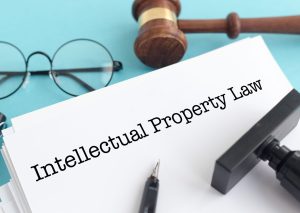 In intellectual property (IP) disputes, there is risk of disclosure of confidential material during the course of legal proceedings in an infringement suit. To mitigate this risk, the law has the provision of forming confidentiality clubs (CCs) under a terms of reference (ToR) agreement between the contesting parties. Access to information is usually restricted to experts and legal representatives (tier 1) but may subsequently be widened (tier 2) as required under peculiar facts and circumstances of a case.
In intellectual property (IP) disputes, there is risk of disclosure of confidential material during the course of legal proceedings in an infringement suit. To mitigate this risk, the law has the provision of forming confidentiality clubs (CCs) under a terms of reference (ToR) agreement between the contesting parties. Access to information is usually restricted to experts and legal representatives (tier 1) but may subsequently be widened (tier 2) as required under peculiar facts and circumstances of a case.
In the recent case of Sygenta Limited and Anor v GSP Crop Science Private Limited, Delhi High Court had long been dealing with allegations of infringements of patents protecting a fungicide. In 2024, the court had overseen the execution of the ToR and requested the Indian Institute of Technology at Delhi to nominate a scientific adviser. The ToR provided for access to the documents collected by the scientific adviser to be released to the tier-2 participants of a CC, who included two representatives of each party as well as the tier-1 scientific adviser and the parties’ external counsel.
The plaintiffs nominated their process chemist and co-inventor of the subject matter of the patents. He was based at the plaintiffs’ group of companies in the UK. In a subsequent 2024 hearing, the plaintiffs claimed the representative had accompanied the scientific adviser and each party’s counsel on an inspection but was denied access to the material collected by the scientific adviser. The parties returned to court in January.
The plaintiffs applied for the defendant to provide its representative access to the records as set out in the ToR. The defendant resisted on the grounds of non-maintainability. The application had been made under section 151 of the Code of Civil Procedure, 1908, that confirmed the inherent power of the court. However, the plaintiffs were alleged to be on a fishing expedition by not stating the purpose and use of the documents. There was also allegedly a high risk of leakage of information and a violation of section 104A of the Patents Act, 1970. This was because of the disclosure of the defendant’s confidential documents to a resident abroad. The representative was a tier-2 CC member, not under the plaintiffs’ control, because he was no longer an employee but a consultant.
As regards the objection to maintainability, the court held that the application was maintainable because it sought compliance with the mutually agreed ToR. Regarding the second objection with regards to access of documents to tier-2 members, the court emphasised the importance of the ToR, which stated that records and documents verified by the scientific adviser shall be open to the members of the CC. The only limitation was that the information had to be used solely for the purposes of the action. Because the ToR was jointly prepared by the parties, the court held that tier-2 members could not be denied access to the defendant’s records and documents except those relating to suppliers.
Dismissing the objection with respect to an ex-employee of the plaintiff who was residing abroad, the court observed that since the representative was no longer an employee of the plaintiffs, was not contractually bound by the plaintiffs and was not involved in the plaintiffs’ day-to-day business operations and management, it complied with rule 11 of the High Court of Delhi Rules Governing Patent Suits, 2022, as well as being consonant with the order made in Interdigital Technology Corporation and Ors v Guangdong Oppo Mobile Telecommunications Corp Limited. Even otherwise, since the representative had filed an affidavit undertaking to use the information only for the purpose of his analysis, not to disclose the information outside the CC and to keep it confidential, the court was of the view that the defendant would suffer no prejudice. The court restated an order earlier in the case confirming settled law that the onus is on the defendant to show that its process did not infringe the plaintiff’s patents. The defendant was permitted to place on record the process which it used, with a copy to the plaintiffs.
The court ordered the defendant to supply the documents collected by the scientific adviser with leave to redact the names of its suppliers. This decision illustrates the importance of maintaining equity between parties contesting an infringement suit as well as shows the need to draft the ToR precisely and things to be kept in mind while forming the CC.
Authors: Manisha Singh and Swati Mittal
First Published by: IBLJ here



